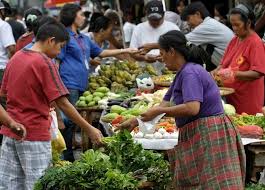Norway keen to expand trade after PHL-EFTA deal

Business World - 26 May 2019
Norway said Philippine exporters should to tap its market by taking advantage of the country’s trade deal with the European Free Trade Association (EFTA).
“We are open for business,” Norwegian Embassy Manila’s Second Secretary Stian Arvid Hegland was quoted as saying in a statement by the Philippine Exporters Confederation.
He identified several export opportunities to Norway, such as furniture, clothing and footware, fruit and vegetables including organics, groceries, flowers, chemical products, ceramics and handicrafts, and groceries.
Mr. Hegland also noted that the Norwegian market requires products entering the market to conform with its quality, health and safety, traceability, and reliability standards.
He noted that Norway implements Responsible Business Conduct international standards, such as Organisation for Economic Co-operation Guidelines for Multinational Enterprises, the United Nations Guiding Principles on Business and Human Rights and the UN Global Compact.
In 2017, Norway’s top imports from the Philippines were electrical machinery; other electronics; clothing and accessories; office and information technology (IT) equipment; travel accessories, handbags and garments; and vegetables and fruits, he added.
Mr. Hegland said Philippine exports since the beginning of trade with Norway have hit $43 million.
He added that in 2017, Norway had a 5.3 million population and a gross domestic product of $398 billion.
Apart from Norway, other EFTA member states are Iceland, Liechtenstein, and Switzerland. The agreement with the bloc came into force on June 1, 2018.
The agreement, set to give the Philippines a stronger foothold in Europe, covers trade in goods and services, investment, intellectual property, government procurement, competition, and trade and sustainable development.
Some of the benefits for Philippine products are duty-free market access for all industrial and fisheries exports, significant concessions on agricultural exports, and more liberal origin requirements.
The deal also presents opportunities for Filipino skilled workers and professionals who want to access the EFTA market or partner with EFTA service suppliers who intend to supply services in the Philippines.





